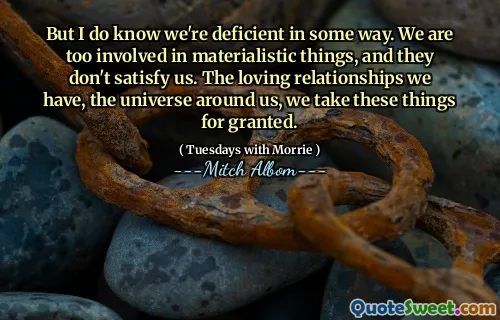
Money is necessary in everyone's life. Why? Only because people have decided that it should be. It didn't have to be the way that it has become. If nothing came at the price of money, it wouldn't need to exist.
This quote offers a profound reflection on the nature and role of money in human society. It prompts us to question the societal and psychological constructs that have elevated money to a position of paramount importance. The statement suggests that money, in itself, is not an inherently necessary element of life but has become so because of collective human decisions and social agreements. This insight challenges the conventional understanding that money is an inevitable aspect of existence, instead framing it as a social convenience that could, theoretically, be bypassed or redefined. It speaks to the idea that many of our societal values and systems are man-made and therefore subject to change.
The reflection here encourages a critical look at the causes behind our dependence on money. It invites us to consider alternative ways of organizing society where the pursuit of material wealth isn't the central drive. If society were to redefine value and exchange, perhaps through more cooperative or intrinsic measures, the power dynamic behind money could shift or diminish. Additionally, it raises awareness about the potential to liberate individuals from financial stress and inequalities rooted in monetary systems.
Understanding that money's necessity is a human-made concept can inspire efforts toward reforming economic and social policies. It emphasizes that change is possible if collective beliefs shift. Such a perspective fosters hope for a future where wealth isn't the sole measure of success and where social equity gains prominence. Ultimately, the quote underscores the importance of conscious awareness of the social constructs governing our lives and encourages openness to reimagining the foundational aspects of our societies.
---Ashly Lorenzana---











